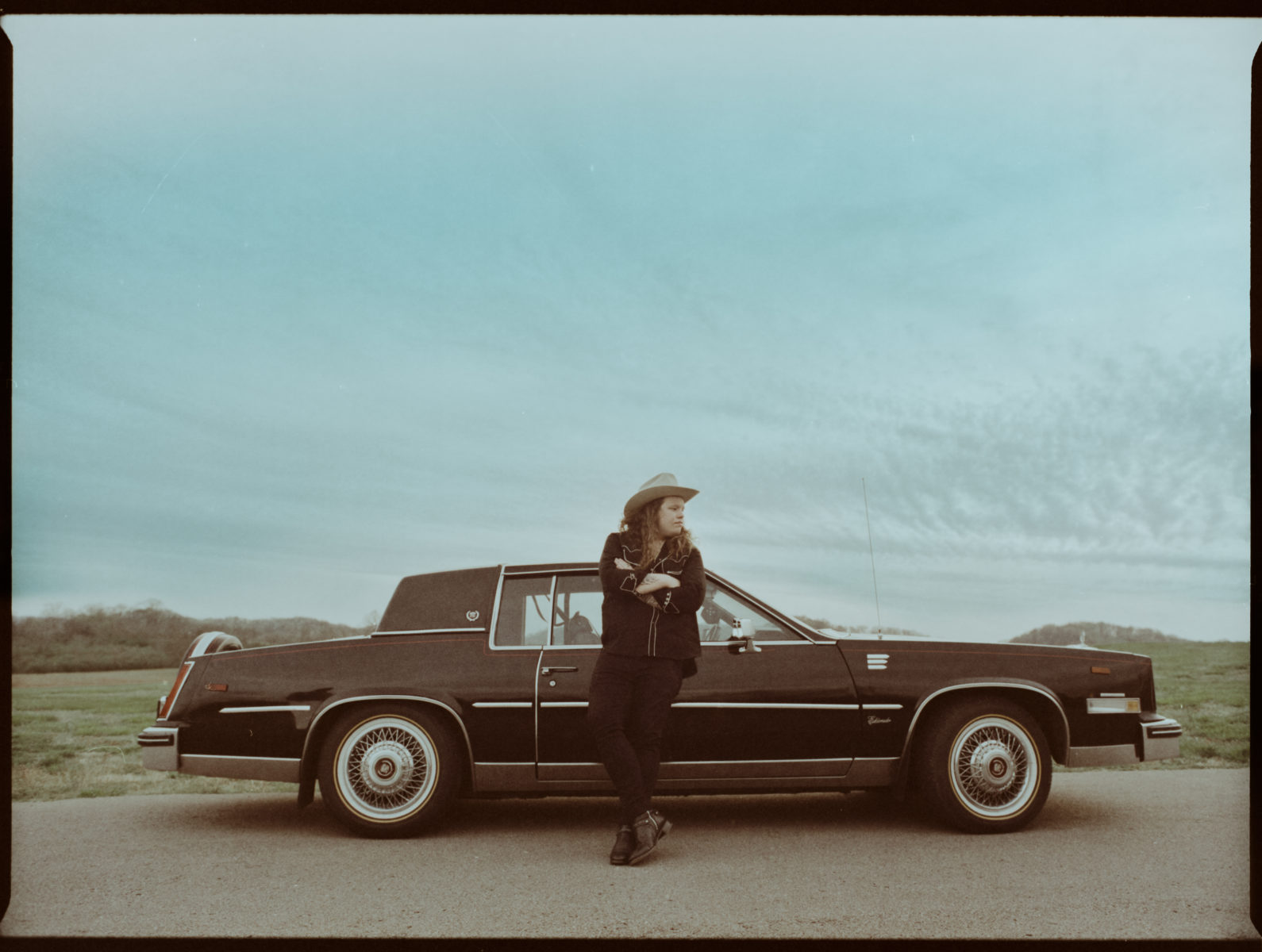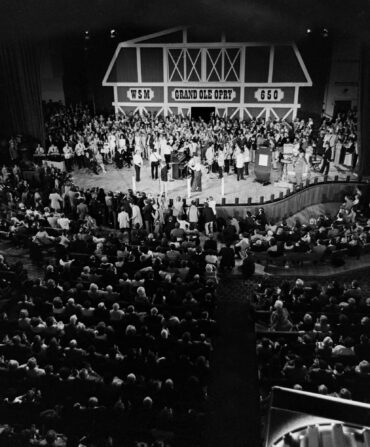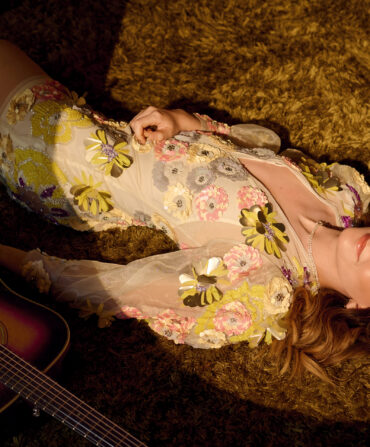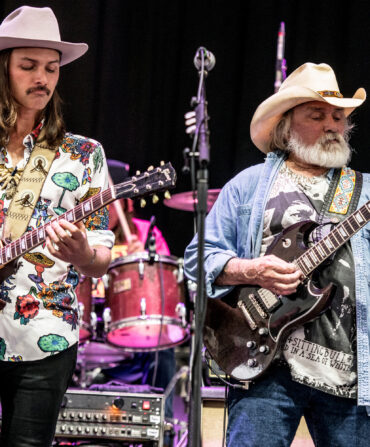Music
A New Era for Marcus King
2020 brought introspection and a fresh sound for the eclectic rock-and-roller, featured on Spotify’s Indigo playlist
Sponsored Content


Photo: Courtesy of Easy Eye Sound / Spotify
Since the release of its debut album, 2015’s Soul Insight, the Marcus King Band has lapped the country several times, touring for months on end and energizing audiences with its rafters-raising rock-and-soul sound. For King, the twenty-four-year-old front man, guitar virtuoso, and Greenville, South Carolina, native, it’s tough to describe his own music, which draws inspiration from outlaw country, gospel, Muscle Shoals soul, the Southern rock reverberations of the Allman Brothers, and more. Thankfully, it’s a question that only seems to pop up in between gigs—and usually when he’s waiting to board a flight to the next one.
“The only time it becomes difficult is when someone in the airport asks you what kind of music you play,” he says with a chuckle. “It takes me about five minutes to explain what the hell I do. I usually just say we play rock and roll, but it’s nice to exist in the Americana world where it’s all just kind of loose.”
With last January’s El Dorado, his first solo effort, King leaned into new sonic territory, exploring the limitless space between country, funk, and every genre in between. Produced by renowned rocker and Black Keys vocalist-guitarist Dan Auerbach, El Dorado showcases King’s voice, which can leap from a sweet serenade (“Beautiful Stranger”) to a rabble-rousing roar (“The Well”) in a single downbeat. Spotify’s Indigo—a playlist that celebrates musicians thriving in the “Americana world,” melding country music with other genres in their own unique ways—includes “One Day She’s Here,” one of the album’s moodiest, grooviest cuts. The song is a breakthrough for King, as is El Dorado: Stepping outside of his comfort zone, he wrote his most eclectic and personal album yet.
Let’s walk through the backstory of “One Day She’s Here.” Why does it stand out for you?
I showed up late to a writing session with Dan Auerbach and Pat McLaughlin, who I cowrote the song with. Pat had this bouncy chord progression that he was just getting into. I sat down, and it felt like we wrote the song in five minutes—it just flowed so naturally between us. The whole record was a way for me to speak my mind, but I brought in some great architects who could help me learn how to write a true song. This one really speaks from the heart. It makes me think a lot about my current girlfriend, who I used as the muse of [El Dorado]. It’s always a little awkward when you’re writing about your relationships, but it’s the only way I know how to do it.
How has El Dorado been an outlet for you during this completely unpredictable year?
A lot of people go out and tour their records throughout the entire album cycle. We’ve always approached our shows differently; we play stuff from the record, but we also try to put on a different show every night, especially if we’re doing a multiple-night run. We took this material out a few months before January, just test-driving it because we anticipated playing it for all of 2020. Of course, that wound up not being the case, but it gave me even more appreciation for the music. I didn’t have to drive it into the ground every night, and now when I play it, I genuinely enjoy the material. It’s still really fresh. We also have almost two records of new material that we’re getting ready to record.
Did you write those songs in 2020, or had you been working on this new material for a minute?
For the most part, the new work was all written in the quarantine phase. We’d been touring for the last six years, doing more than two hundred days on the road. We were all pretty spent. It’s almost like a top: When you spin it, you never realize how fast you’re going, and you can’t really slow down gracefully. A top always falls over, and that’s kind of where we were. When they shut the country down, we all sort of fell over and thought, “All right, well, I think this is going to be good for our mental health.” It was, and that’s when the writing started.
Something I love about your music is how it sounds both classic and current at the same time. Looking through the artists on Indigo, it seems many are able to push the industry in a progressive direction while still making music that stands the test of time. When it comes to the music you make (and the music you appreciate), does this happen organically, or is it a conscious effort?
From a young age, I was a Stevie Ray Vaughan and Allman Brothers fan, and Hendrix, of course. But you don’t want to sound like a watered-down version of your heroes. At a certain point, you have to step outside that box and find what it is that you do. If you can pay homage to people that did it before you, that’s great, because the forefathers of the music we love paved the way for us. But since the dawn of man, people have been doing it their own way—it’s the only way to learn. As far as putting yourself into the music, I think that’s what brings in the modern element. For me, I’ve tried to be open about my mental health, which I think puts a modern spin on everything. People hadn’t really done that much in recent years.
Is there anything on El Dorado that stands out as an example of your challenging yourself musically or lyrically to really do your own thing?
“Love Song” comes to mind. I’d never written anything that vulnerable because words of affirmation weren’t my family’s love language by any means. To me, writing a love song always seemed like, “You should know that I love you! I don’t have to spell it out all the time.” So it was interesting to write a song like that, though it came about very organically. Musically, it was challenging because it wasn’t guitar-centric or anything like that; it was just me as a vocalist on that track, which was a real learning curve and a fun challenge.
Spotify’s Indigo offers an opportunity to celebrate country music, but also challenge the ideas or assumptions about country. What is unique about Indigo, and why is this playlist an ideal outlet for your music?
I’ve always been more of a chameleon when it comes to songwriting, because I’ve never really wanted to be pigeonholed into one style or another. [Indigo] is pretty open to that. I grew up listening to Waylon Jennings as much as I was listening to James Brown, so on any given night, my band and I could play a Waylon cover, an Otis Redding cover—nothing is out of the realm of possibility. That’s what [Indigo] is offering: open-mindedness to broad strokes.
What are some changes that you want to see in the music industry, and in your corner of it?
I think we can always approach things with a more open mind. We can look further within ourselves, and start writing about real subjects. And maybe it’s time for some more protest songs to be on Top 40 radio.
Indigo is a Spotify playlist featuring artists who embody the heritage of country music while bringing forth their forward-thinking songwriting, production, and lyrics. Listen now to hear songs by King and many others.







